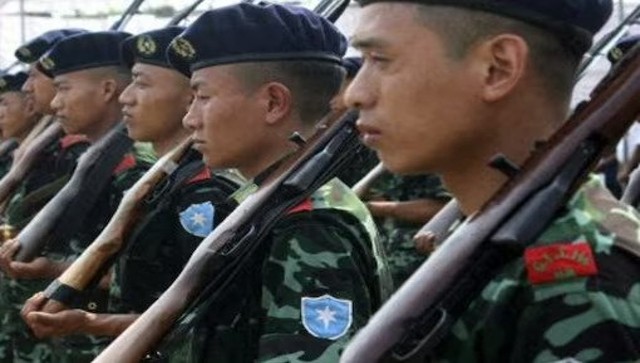A compromise to end the NSCN (IM) impasse which was gaining ground seems to have hit the “bump on the road”. While this impasse can be attributed to the unprecedented situation in Manipur, the fact of the matter is that even the most acerbic of Doubting Thomases were of the view that a “beginning of the end” was in sight and a full-bodied resolution would soon see the light of day. The optimism grew after AK Mishra took over as the interlocutor after the exit of RN Ravi. Most observers are of the opinion that the signing of the “Framework Agreement” in 2015 was the real culprit. This author clearly recalls Zeliang, the then Chief Minister of Nagaland, telling him that nobody knows what was inside the “Framework Agreement”. In jest he told this author, “one doesn’t know whether there is a cake inside it or a bomb”! Former Union Home Secretary GK Pillai (in a telephonic conversation with this author) called the “Framework Agreement” a “damp squib”. Indeed, Pillai was of the opinion that the talks with the NSCN (IM) had almost reached an affable climax during the UPA regime, when RS Pandey was the interlocutor. It is reported that there was a high degree of trust and respect existed between the two sides. Extensive negotiations husbanded by guidance from New Delhi ensured that there was agreement on almost 95 percent of the issues. Indeed, the only two issues that had remained to be ironed out was the degree of autonomy that was to be provided to the Naga-dominated hill districts of Manipur and the manner in which the Pan Naga Council that was to be set up to preserve the culture and heritage of the Naga people. As aforesaid, the trust factor continued even with the change of guard in 2014 and the appointment of Ravi as the interlocutor. The “Framework Agreement” of 2015 which was signed at the request of the NSCN (IM), since its chairman, Isaac Chisi Swu, a Sumi Naga, was critically ill and the organisation wanted his signature on the document (taken while he was in the ICU) was primarily to proclaim that the NSCN (IM) was not just a Nagaland-based group but an all-inclusive one. New Delhi was accommodative and the gesture was appreciated by the Nagas. The developments in Kashmir in 2019 affected the dialogue process. The abrogation of Article 370 and the bifurcation of Jammu and Kashmir into two Union Territories made NSCN (IM) anxious. The second was the concurrent appointment of Ravi as the Governor of Nagaland. Indeed, Ravi’s comments as the Governor undermined his position as the interlocutor. Fissures, therefore, began to appear. The last straw on the camel’s back was when Ravi termed the NSCN (IM)’s activities as “extortion by armed gangs”. The talks had come to a grinding halt. In this backdrop, AK Mishra’s appointment, following the exit of Ravi, is a welcome development and it is sincerely hoped that he would live up to the expectation of the nation. While it is expected that the dialogue process hereafter would progress in cordiality, the NSCN (IM) must comprehend that New Delhi would never countenance demands such as a separate flag, constitution and a Nagalim that seeks to incorporate Naga-dominated areas of other states in the North East. Thuingaleng Muivah continues to be adamant about the Naga-dominated areas of Manipur. After all it is his homeland and that of his primary parish, the Tangkhuls. But neither New Delhi nor Imphal would ever countenance a balkanisation exercise. Nor has a comprehensive autonomy plan been charted out whereby the hills of Manipur would lend itself to both the NSCN (IM)’s and Imphal’s agreement. The situation, therefore, presents itself as a debilitating stalemate. It must be understood that the key to a successful negotiation is trust, respect and sincerity between those engaged in the process. Both sides have to regain each other’s confidence and trust. Moreover there has to be complete transparency with Manipur, as also Nagaland. The civil societies of both the states, too, have to be taken into confidence. The situation in Manipur has made the process murkier, but New Delhi has to wade through the morass if the enchanted frontiers have to become an able partner in India’s nation-building exercise. The process would unfortunately be slow, but patience marked by benevolence, deference and mutual trust will be vital. In the end, it would have to be trust and a faith that the past can be forgotten which would herald the end of the longest standing insurgency in independent India. The writer is a conflict theorist and bestselling author. Views expressed are personal. Read all the Latest News , Trending News , Cricket News , Bollywood News , India News and Entertainment News here. Follow us on Facebook, Twitter and Instagram.
The key to a successful negotiation is trust, respect and sincerity between those engaged in the process. Both sides have to regain each other’s confidence and trust
Advertisement
End of Article


)

)
)
)
)
)
)
)
)



